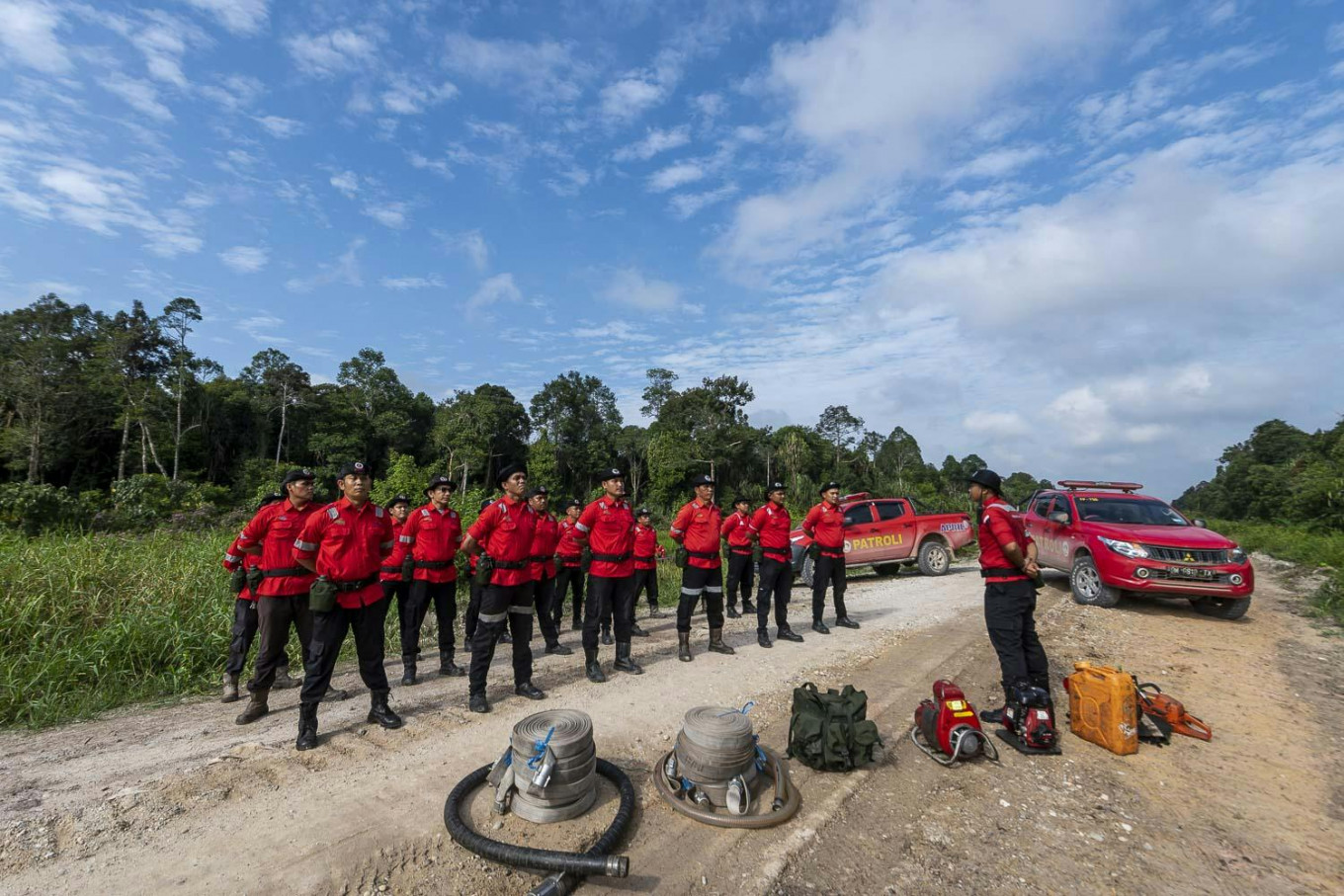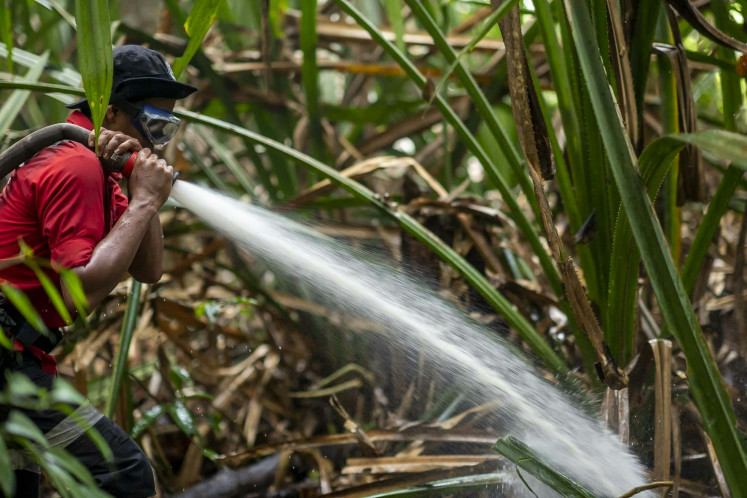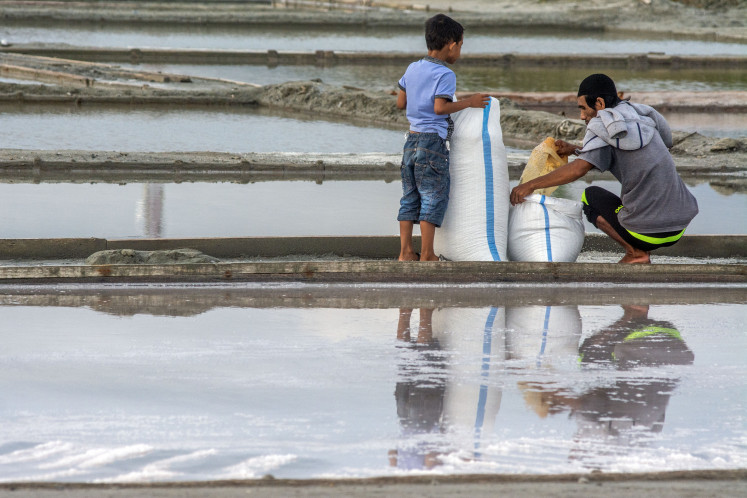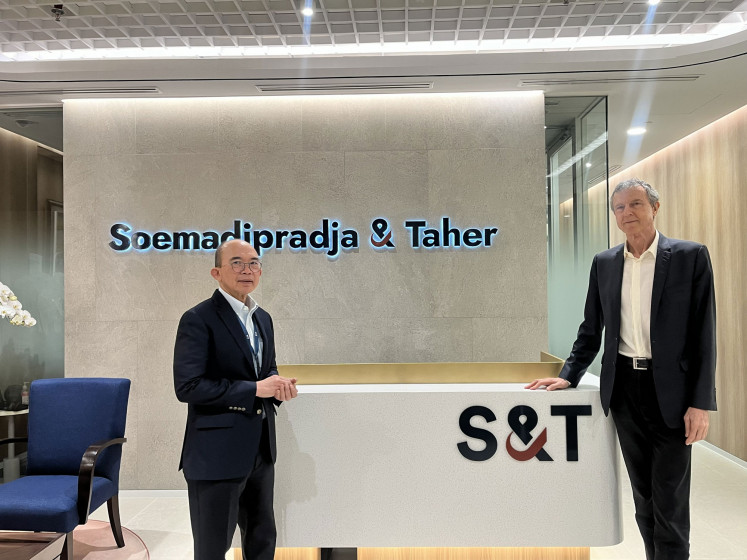Popular Reads
Top Results
Can't find what you're looking for?
View all search resultsPopular Reads
Top Results
Can't find what you're looking for?
View all search resultsAPRIL Group highlights best practices as FFA member
Change text size
Gift Premium Articles
to Anyone
A
s Indonesia anticipates the dry season this year, safeguarding the forests and biodiversity from the threat of forest fire takes center stage. As of Sept. 2, the National Disaster Mitigation Agency (BNPB) has recorded 490 land and forest fires, more than three times the 160 fires that were recorded in 2022.
For members and stakeholders of the Fire Free Alliance (FFA), land and forest fires represent a transboundary challenge that demands collective action from its members, who are committed to technical in-field fire prevention and mitigation efforts whilst actively empowering communities to be part of the solution. .
The FFA was established in 2016 in response to the devastating 2015 El Niño fire season, which, according to World Bank estimates, generated US$16 billion in economic losses while also significantly impacting the health of surrounding communities. Its membership is open to any organization engaged in practical and operational solutions to the issue of land and forest fire in Indonesia and Southeast Asia.
One such member leading the charge in fire prevention is the APRIL Group, one of the world’s largest makers of pulp and paper products, known for its commitment in sustainable forest management practices.Based in Pangkalan Kerinci, Riau, APRIL Group manages approximately 1 million hectares of land, with 480,000 ha used for plantations while the remaining 51 percent is set aside for conservation, community use, infrastructure and other land uses.
Fire and haze monitoring
Effective monitoring provides companies, local governments and communities with a potentially life-saving head start. Long-term climate forecasts of up to three months have a significant impact when combined with regular and widespread monitoring at the ground level.
As part of its Sustainable Forest Management Policy 2.0, APRIL is committed to protecting forest and peatland landscapes. The group’s No Burn policy encompasses fire detection and Early Warning System (EWS), air quality monitoring activities in Riau, patrols and weather monitoring in 28 estates and haze monitoring in seven locations across Riau.
In addition, the Fire Free Village (FFV) program recruits and trains local crew leaders to monitor 4 villages around concession areas, supported by towers, CCTV cameras, patrols and satellites. Working via a dedicated cluster committee, APRIL also actively collaborates with 12 companies outside these areas to produce risk assessments based on the most current data projections.
“We are fully aware of the risks posed by the climate this year and we are preparing accordingly. Based on our experience, preventing fire is the most crucial way to reduce the risk of fire. By focusing on fire prevention, we can protect the health of our communities and employees, protect the environment, and make sure our operations aren’t affected,” said Sihol Aritonang, President Director of PT Riau Andalan Pulp and Paper, the operating arm of APRIL Group.
Capacity building
The majority of forest fires in Indonesia can be attributed to human activity, with the FFA estimating that around 80 percent are associated with slash-and-burn agriculture; a process of land clearance traditionally used by farmers to make space for new agriculture.
Slash-and-burn agriculture is often the cheapest and most practical option available to farmers, who may not fully understand the risks and negative impacts associated with the approach.
The first step toward effective fire prevention is raising awareness of the problem, with a focus on working with and including locals in decision-making processes, enabling them to bring their perspectives when designing new strategies and processes.
APRIL employees integrate their own activities with community outreach via the Village Crew Leaders program, which recruits local community members as contractors and encourages former slash-and-burn farmers to become ambassadors for sustainable practices.
Since July 2015, APRIL’s FFVP has raised awareness in 42 villages, covering an area of 803,000 ha. Meanwhile, the No Burn Reward program has helped incentivize compliance among communities, while patrols and training sessions have strengthened enforcement in addition to an awareness campaign focused on drive-in cinemas that has helped change attitudes.
Sustainable livelihoods
As most forest fires are caused by slash-and-burn activities, this root cause must first be addressed by working closely with local communities through developing more responsible practices and alternative livelihoods.
APRIL’s sustainable livelihood activities can be divided into two key areas of focus: Responsible land preparation and good agricultural practices.
The group has facilitated discussions between landowners, enabling them to form cooperatives and apply for assistance in opening or clearing their land. Following further collaboration with, and approval from local government, APRIL then utilizes its heavy machinery to assist in the preparation of land for new agriculture in a more responsible manner, saving farmers’ money while also avoiding slash-and-burn techniques.
The resulting rice fields, chili plantations, orchards and horticulture projects are then supported by agronomists provided by APRIL. In one example, APRIL recruited an expert from IPB University in Bogor, West Java, to support chili and corn plantations in Teluk Meranti, Riau, helping farmers to overcome their previous difficulties with soil alkalinity and pests.
APRIL currently monitors five villages as pilot projects, assisting farmers with responsible land clearance and empowering local people to cultivate their lands in a safer and more sustainable manner.
For more information on the best practices in forest fire prevention and mitigation from the FFA’s member companies, visit https://www.firefreealliance.org/case-study/
This article was published in collaboration with APRIL Group.












